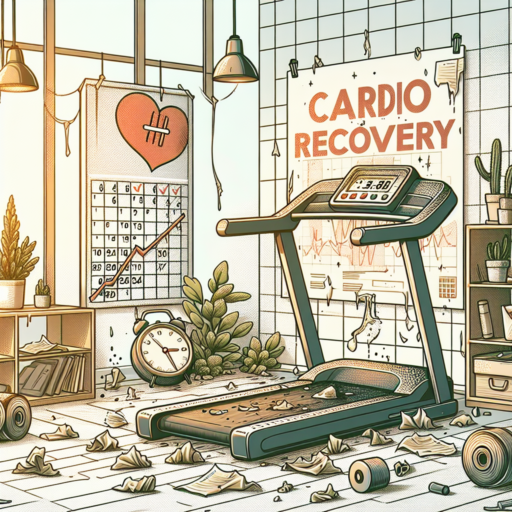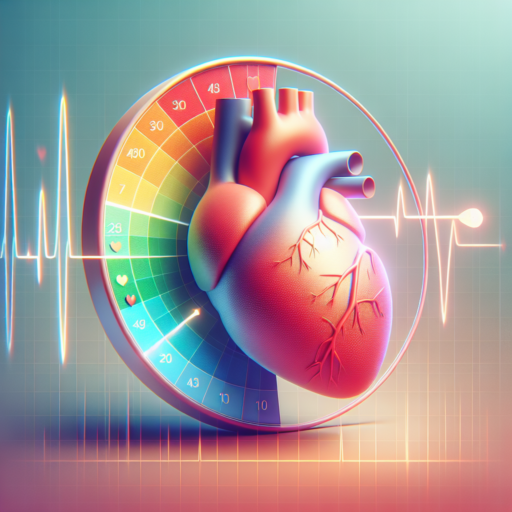Understanding Cardio Recovery: Why It Matters
When it comes to improving cardiovascular health, recovery plays a crucial role that is often overlooked. Cardio recovery is the time your body takes to return to its pre-exercise state, and understanding its importance can significantly enhance your workout efficiency and overall heart health. This part of the exercise regimen is key to preventing injuries and ensuring that your body gets the rest it needs to strengthen and repair itself after the stress of cardio workouts.
Importance of Adequate Recovery
Adequate recovery after cardiovascular exercise is essential for allowing your heart rate and blood pressure to return to baseline levels gradually. This process is vital for managing stress on the heart and avoiding potential strain that could lead to complications. Moreover, during the recovery phase, your body clears out the lactic acid produced during exercise, which helps in reducing muscle soreness and fatigue. Emphasizing recovery can also enhance your body’s ability to increase its aerobic capacity over time, making your cardio sessions more effective.
Optimizing Cardio Recovery
Optimizing your cardio recovery involves several practices, including adequate hydration, proper nutrition, and ensuring enough rest between workout sessions. Integrating gentle stretching or yoga can also facilitate muscle recovery, improving flexibility and blood circulation. Furthermore, using techniques such as controlled breathing can help in lowering the heart rate more efficiently, aiding the recovery process. These practices are not only beneficial for your physical health but also contribute to mental well-being, underlining the multifaceted benefits of a well-managed recovery phase.
Common Causes of Decreased Cardio Recovery
Understanding why your cardio recovery may be dwindling is crucial for athletes and fitness enthusiasts alike. Several factors can contribute to a decrease in your body’s ability to recover after intense cardio sessions. By identifying these common causes, you can take steps to improve your cardio recovery and overall cardiovascular health.
Inadequate Nutrition and Hydration
One of the foremost reasons for decreased cardio recovery is inadequate nutrition and hydration. Your body needs a delicate balance of nutrients and fluids to recover effectively from cardiovascular activities. Consuming insufficient proteins, carbohydrates, and essential vitamins and minerals can hinder muscle repair and energy replenishment. Likewise, not drinking enough water or electrolyte-rich fluids can lead to dehydration, making it harder for your body to process and flush out toxins accumulated during exercise.
Insufficient Rest
Another significant cause is insufficient rest. Cardiovascular exercise demands a lot from the body, and without adequate rest, your muscles and cardiovascular system do not have the necessary time to repair and strengthen. Overtraining or inadequate rest can lead not only to decreased cardio recovery but also to increased risk of injuries and chronic fatigue, inhibiting your overall fitness progress.
Understanding and addressing these common causes can be a game-changer in improving your cardio recovery. By ensuring proper nutrition, hydration, and rest, you can support your body’s natural recovery processes, enhancing your cardiovascular resilience and performance.
No se han encontrado productos.
Signs Your Cardio Recovery Is Decreasing
Identifying signs that your cardio recovery is decreasing is crucial for maintaining an optimal fitness routine and overall health. A decline in cardio recovery can signal that your body is not recuperating as efficiently as it should from physical exertion. Understanding these signals is key to preventing potential health issues and optimizing your workout regimen.
Feeling Unusually Fatigued
One of the primary indicators of diminished cardio recovery is feeling unusually fatigued after your regular workout routine. If you’re experiencing prolonged exhaustion that doesn’t seem to align with the intensity of your exercise, it might be a sign that your body’s recovery capabilities are not keeping pace. This type of fatigue can extend beyond physical tiredness, affecting your mental and emotional states as well, making it harder to motivate yourself for your next training session.
Extended Recovery Periods
Another sign to watch out for is the need for extended recovery periods. Typically, your body should bounce back from moderate to intense cardio sessions within a 24 to 48-hour window. However, if you find that your body is consistently requiring more time to feel «normal» again, it’s a potential indication that your cardio recovery is not as efficient as it used to be. Tracking these recovery times can provide valuable insights into your cardiovascular health and fitness levels.
Decreased Exercise Performance
Lastly, a notable decrease in exercise performance can be a telling sign of declining cardio recovery. If you observe a reduction in your ability to sustain intensity, speed, or duration during workouts that previously felt manageable, it could be due to inadequate recovery. This decrease in performance is particularly significant if your training regimen and nutritional intake have remained consistent.
How Decreased Cardio Recovery Affects Your Health
Understanding the impacts of decreased cardio recovery is crucial for maintaining optimal health and fitness levels. When your body takes longer to return to its resting heart rate after physical activity, it’s a signal that your cardiovascular system is under stress. This prolonged recovery period can have several adverse effects on your health, affecting everything from your physical performance to your overall wellbeing.
Increased Risk of Cardiovascular Diseases
One of the significant concerns with poor cardio recovery is the increased risk of developing cardiovascular diseases. A slow return to resting heart rate post-exercise indicates that your heart is working harder than it should, even when you’re not exerting yourself. This additional strain can lead to high blood pressure, coronary artery disease, and other heart-related issues over time, underscoring the importance of monitoring your recovery rates.
Impact on Physical Performance and Recovery
Moreover, when your cardiovascular system struggles to recover, it can directly impact your physical performance. Athletes or individuals engaged in regular physical activity may notice a decline in their endurance and stamina, as their bodies cannot efficiently remove lactic acid and replenish oxygen to the muscles. This inefficiency not only affects subsequent workout performance but also prolongs the recovery phase, increasing the likelihood of injuries and fatigue. Keeping a vigilant eye on how quickly your heart rate normalizes after exercise can help in fine-tuning your training regimen for optimal performance and health.
Overall, decreased cardio recovery capacity is a critical health indicator that should not be overlooked. Whether you’re a seasoned athlete or someone looking to improve their fitness level, understanding the implications of your body’s recovery abilities can play a pivotal role in safeguarding your cardiovascular health and enhancing your physical performance.
Practical Steps to Improve Your Cardio Recovery
Optimizing your cardio recovery is essential for enhancing your physical performance and overall health. Integrating practical steps into your recovery routine can maximize the benefits of your cardio sessions and ensure you’re getting the most out of your workout. From incorporating specific nutrition strategies to understanding the role of active recovery, these methods are foundational in improving your body’s ability to recuperate effectively.
Incorporate Protein and Hydrates
One key element in improving cardio recovery is the focus on post-workout nutrition, specifically the intake of proteins and hydrates. Consuming a balanced mix of proteins and carbohydrates within 45 minutes after a cardio session can significantly facilitate muscle repair and glycogen replenishment. This nutritional strategy not only aids in reducing muscle soreness but also prepares your body for its next physical challenge. Foods rich in quality protein, such as lean meats or plant-based alternatives, combined with carbohydrates like fruits or whole grains, serve as ideal options for speeding up recovery.
Engage in Active Recovery
Active recovery plays a pivotal role in your cardio recovery process. Instead of adopting a purely restful post-workout period, incorporating low-intensity activities such as walking, stretching, or yoga can promote blood circulation, which in turn helps in flushing out toxins accumulated during intense cardio sessions. This approach not only speeds up the recovery process but also alleviates muscle stiffness and enhances flexibility. Embracing active recovery methods can be a game-changer in how quickly and effectively your body recovers.
Improving cardio recovery is not only about what you do immediately after your exercise but also involves consistent practices that complement your overall fitness regimen. Integrating nutritional planning and active recovery techniques can drastically improve your recuperation, allowing for greater endurance and performance over time. By focusing on these practical steps, you’re well on your way to maximizing your cardio workouts and ensuring your body is always ready for the next challenge.
Nutrition Tips for Enhanced Cardio Recovery
Proper nutrition is a cornerstone for effective recovery after rigorous cardio sessions. Understanding what to eat and drink is crucial for muscle repair, replenishment of lost nutrients, and ensuring your body is ready for the next workout. Incorporating specific nutrients into your diet can significantly enhance cardio recovery and overall performance.
Hydration is Key
Rehydrating after cardio is essential to replace lost fluids. Water is fundamental, but including drinks with electrolytes can further aid in recovery. Electrolytes such as sodium, potassium, and magnesium play vital roles in muscle function and fluid balance. Consider coconut water or electrolyte-infused beverages post-workout to expedite hydration.
Protein for Muscle Repair
Protein is pivotal for muscle repair and growth. After cardio, consuming a source of high-quality protein helps in the rebuilding of muscle fibers damaged during exercise. Lean meats, fish, dairy, or plant-based proteins like lentils and chickpeas are excellent choices. Integrating a protein-rich snack or meal within 45 minutes post-cardio can significantly improve recovery rates.
Complex Carbohydrates for Energy Replenishment
Depleted energy stores are a common aftermath of cardiovascular activities. Restocking glycogen levels is fundamental, and this is where complex carbohydrates come into play. Foods like whole grains, fruits, and vegetables not only replenish energy but also provide vital nutrients and fiber which aid in digestion and overall health. A balanced meal containing complex carbohydrates after cardio helps ensure your body has the necessary fuel for recovery and future performance.
The Role of Sleep in Cardio Recovery
The intricate relationship between sleep and cardiovascular health is an area of increasing interest among healthcare professionals. Adequate sleep is not merely a passive period but a critical component for the recovery and rebuilding processes of the body, particularly after cardiovascular exercise and stress. This restorative period facilitates numerous physiological processes essential for heart health and endurance-building.
Enhancing Heart Repair and Maintenance
During sleep, the body enters a state of reduced demand for the heart, allowing it to repair and recover more efficiently. This natural reduction in heart rate and blood pressure during the non-REM stages of sleep provides an optimal environment for repairing the cardiovascular system. Moreover, sleep promotes the release of growth hormones, which play a pivotal role in tissue growth and muscle repair, essential for those recovering from cardiovascular strain.
Regulating Stress Hormones
Sleep also plays a crucial role in modulating levels of stress hormones, such as cortisol, in the body. Elevated levels of these hormones can lead to increased blood pressure and heart rate, putting additional stress on the cardiovascular system. By ensuring adequate sleep, individuals can help maintain a healthier balance of these hormones, thus supporting heart health and aiding in cardio recovery.
In the context of cardio recovery, the quality of sleep is just as important as its duration. Deep sleep stages are particularly beneficial for cardiovascular health, as they provide the most restorative effects for heart recovery. Therefore, individuals aiming to improve their cardiovascular health or enhance their recovery after cardiovascular exercises should prioritize both the quantity and quality of their sleep.
Advanced Techniques to Monitor Your Cardio Recovery
Understanding and monitoring your cardio recovery can play a pivotal role in enhancing your overall fitness strategy. With advancements in physiological measurement and data analysis, there are now more sophisticated methods available to accurately gauge your recovery post-exercise. These methods not only help in optimizing your training schedules but also in minimizing the risk of overtraining and potential injuries.
Implementing Heart Rate Variability (HRV) Analysis
One of the most effective techniques for monitoring cardio recovery involves analyzing Heart Rate Variability (HRV). HRV measures the time variation between each heartbeat and is an excellent indicator of your autonomic nervous system’s responsiveness. A higher variability suggests a healthier, more responsive system, indicating better cardio recovery. Athletes and fitness enthusiasts are increasingly using HRV data collected through wearable technology to tailor their training programs for improved performance.
Utilizing Recovery Heart Rate (RHR) Metrics
Another insightful tool is tracking the Recovery Heart Rate (RHR), which is the speed at which your heart rate returns to its basal rate after intense activity. Monitoring the RHR can provide immediate feedback about your physical condition and cardio recovery efficiency. An effective decline in RHR within a few minutes post-exercise signifies a strong, well-conditioned heart. This metric, easily measured with most modern heart rate monitors and fitness trackers, offers valuable guidance for adjusting workout intensity and duration.
By incorporating these advanced techniques into your fitness regimen, you can gain a deeper understanding of your body’s recovery processes and adapt your training to maximize cardiovascular health and performance. Harnessing the power of detailed, real-time feedback empowers personalized adjustments that can lead to significant improvements in your physical well-being and athletic achievements.
When to Consult a Professional About Your Cardio Recovery
Identifying the right time to consult a professional about your cardio recovery is crucial for your health and wellbeing. While it’s normal to experience certain levels of fatigue and discomfort following intense cardio sessions, persistent or severe symptoms may indicate underlying issues that require medical attention. Understanding these signs can help you make informed decisions about seeking professional advice.
Persistent Symptoms Beyond Normal Recovery Time: Typically, recovery time can vary depending on the intensity of the exercise and your fitness level. If you notice your recovery is taking significantly longer than usual, despite proper rest and nutrition, it might be time to consult a healthcare provider. Persistent or worsening symptoms such as extreme fatigue, shortness of breath, and unusual heart rhythms should not be overlooked.
Experiencing Chest Pain or Discomfort: While some discomfort is expected after a vigorous cardio workout, chest pain or discomfort should never be ignored. These could be signs of more serious cardiovascular issues like heart disease or even a heart attack. Consulting a professional is crucial to rule out any potential risks and ensure that your cardio recovery is on the right track.
Frequently Asked Questions About Cardio Recovery
When exploring the concept of cardio recovery, several common inquiries arise as individuals strive to optimize their fitness routines for better health and performance. Understanding the nuances of this process can greatly enhance one’s ability to recuperate effectively after intense cardiovascular exercises.
What is Cardio Recovery?
At its core, cardio recovery involves the strategies and activities undertaken following rigorous cardiovascular workouts to facilitate the body’s return to its pre-exercise state. These practices are crucial for reducing muscle soreness, preventing injuries, and preparing the body for future workouts.
How Long Should Cardio Recovery Take?
The duration of an effective cardio recovery period can vary significantly among individuals, depending on the intensity of the workout and one’s individual fitness level. However, incorporating adequate rest days and engaging in light recovery activities are essential components of a comprehensive recovery plan.
Incorporating stretching, proper hydration, and nutritional strategies into one’s cardio recovery protocol can markedly improve the overall recovery process. These elements support the body’s healing mechanisms, promoting faster recuperation and enhancing physical performance over time.




